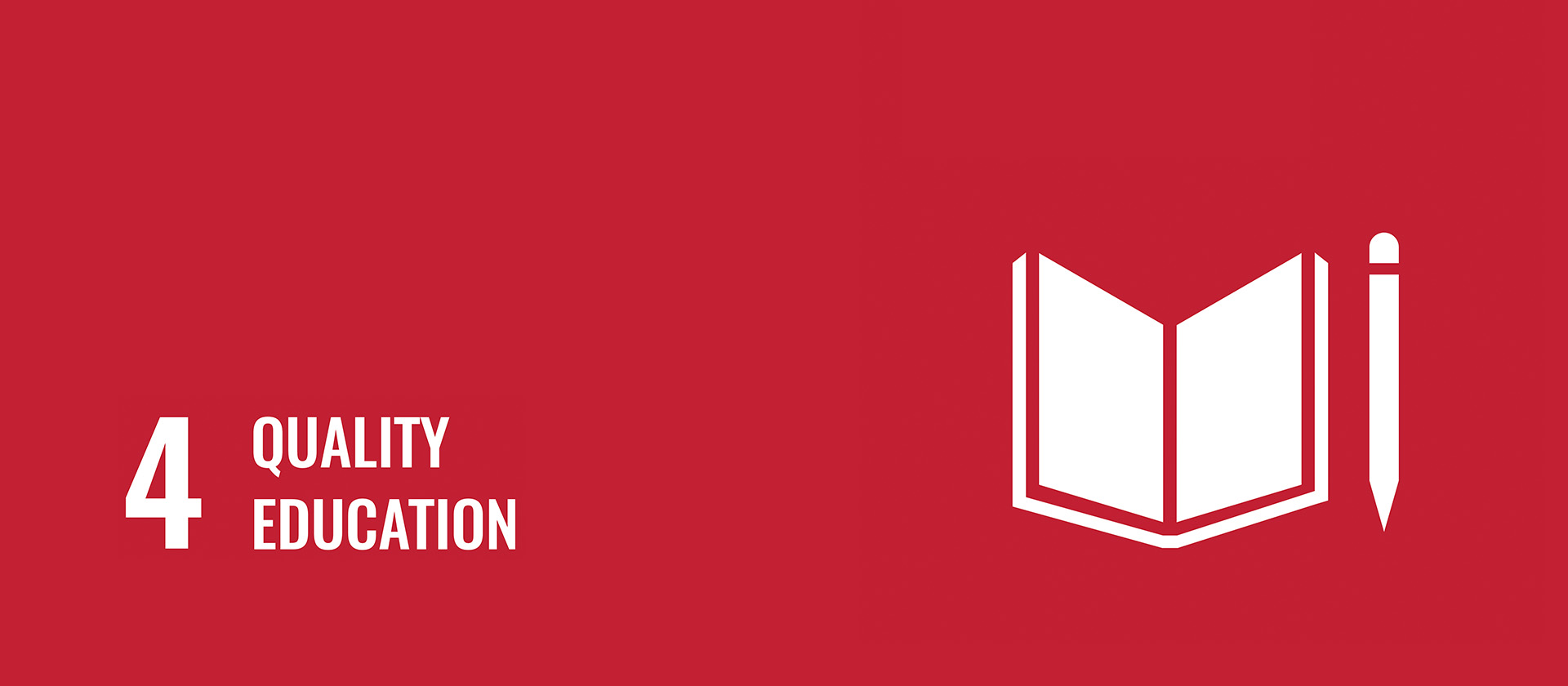The Covid-19 pandemic has enforced the closure of schools across the world when countries are in lockdown periods, this has affected 91% of students globally. Up to 369 million school children would normally be provided with school meals but due to the pandemic alternative ways of providing food for children is needed.
The pandemic has highlighted the educational inequalities right across the world. Education underpins all 17 SDG goals and is a driver for a better future, worldwide.
Teaching and learning
The University of Liverpool students are able to explore the topic of education from a number of different perspectives within course modules. Examples of course modules that have a direct or indirect focus on quality education (as assessed by students) include:
- Essential skills for life science (LIFE 223)
- Strategic learning, training and development (ULMS522)
- Enterprise studies (MNGT 414)
We recognise that there is much more to do to equip students with the knowledge and skills that they need to make a contribution to achieving this global goal. Working with the Guild of Students our undergraduate and postgraduate students have the opportunity to audit their curriculum modules for their relevance to SDG4: Quality education and to make recommendations for changes to the course content. See the SDG Curriculum Mapping Project Report 2022/23.
The University has also recently established an Education for Sustainable Development Working Group. This group brings together academics, students and representatives from our Centre for Innovation in Education to develop a strategic plan for embedding SDGs into the curriculum including SDG4.
There are also a number of ways that students can support the aims and objectives of SDG4 through extra-curricula activities, including through volunteering opportunities provided by the Guild of Students.
Research and knowledge exchange
The University contributes to society by offering quality education to our students and exploring many areas of research. Some key examples are:
- Centre for Higher Education Studies
- Research: Focus point: the need for alternative insight into the entrepreneurial education paradigm
- FISH – Faculty Innovation Student Hub.
Leadership, governance and professional services
Examples of leadership, governance and professional services include:
Pedagogical research conference
The Pedagogic research conference has become an increasingly popular event in the University calendar as it provides an exciting opportunity to collaborate, build networks and share emerging scholarship with peers from across the institution and beyond.
The 5th Pedagogic Research conference was based on the theme of engaging students in their learning. Editors and representatives from a range of academic journals were available to answer questions about publishing opportunities and there were a host of presentations from staff from across the University detailing their pedagogic research projects aligned with engaging students in their learning. In addition, there was an expert panel of University of Liverpool staff offering advice on scholarship, achieving impact and publishing your pedagogical research. The conference was supported by Professor Gavin Brown (Pro-Vice-Chancellor for Education), Dr James Howard (Director of the Academy) and Dr Simon Thomson (Director of the Centre for Innovation in Education).
Curriculum 2021
Curriculum 2021 is a framework. The academic teaching and research staff provide a flourishing, enabling environment to allow the students to meet their potential, gain confidence, become digitally fluent and be better global citizens.
Education for Sustainable Development
The Education for Sustainable Development pages provides information on how staff and students can develop their sustainability literacy with the educational opportunities available.
Back to: Sustainability
